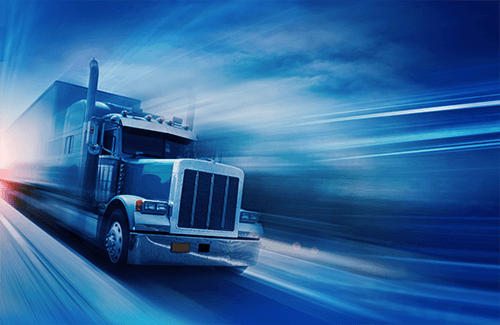 The Commercial Trucking industry has seen its share of technological advancements in recent years. Sensors in roads can now detect tire anomalies, thermal imaging cameras are being utilized to uncover vehicle brake defects, electronic logging devices are now standard for hours-of-service logging, in-cab cameras are shedding light on the lead-up to collisions, and there is more data than ever before available from Engine Control Modules. These are just the start of an increasing wave of innovations that will benefit the planet, the industry, truck drivers, and other motorists that share the road. From electrification to advanced driver assistance systems, various trends are reshaping the landscape of long-haul transportation.
The Commercial Trucking industry has seen its share of technological advancements in recent years. Sensors in roads can now detect tire anomalies, thermal imaging cameras are being utilized to uncover vehicle brake defects, electronic logging devices are now standard for hours-of-service logging, in-cab cameras are shedding light on the lead-up to collisions, and there is more data than ever before available from Engine Control Modules. These are just the start of an increasing wave of innovations that will benefit the planet, the industry, truck drivers, and other motorists that share the road. From electrification to advanced driver assistance systems, various trends are reshaping the landscape of long-haul transportation.
Increasing Sustainability in the Transportation Industry
While Electric Vehicles have been around for a number of years, the idea to use them in long-haul trucking was always hamstrung by the amount of power the trucks consume over long distances and the battery that would be required to provide that. Recent advancements in battery technology mean that batteries are becoming smaller, faster, and more efficient, making them an increasingly viable option for powering large trucks. Electric Trucks would mean reduced emissions, lower operations costs, and quiet operations, benefitting everyone in society.
As regulations demanding better efficiency become more commonplace, more attention is being paid to the shape of the truck, seeking more aerodynamic designs and lighter-weight materials to save on fuel costs. There are also new innovations in trailer design to increase efficiencies with loading and maximize cargo capacity.
Advanced Driver Assistance Systems
Advanced Driver Assistance Systems (ADAS) include different technologies that help drivers with the safe and comfortable operation of their vehicles. Increasing in popularity in both passenger vehicles and Commercial Motor Vehicles (CMVs) alike, these systems include collision avoidance, automatic braking, automatic lane changes, and adaptive cruise control, reducing the risk of accidents and increasing the safety of the nation's roads for all drivers.
Driver Fatigue Detection with Machine Vision
Systems installed within the cab of commercial trucks can use machine vision to detect signs of fatigue or distraction. These human factors pose huge safety risks within the trucking industry with over 8% of fatalities being due to distracted driving. These in-cabin sensors work by monitoring indications like eye movement, blinking, and head position to assess levels of drowsiness or inattention, alerting the monitoring center for further assessment. Alerts are also sent to the driver to warn them, helping them be aware of when a break may be necessary.
Advanced Fleet Management Systems
A combination of the Internet of Things and GPS tracking is allowing for more effective and efficient fleet management through a wealth of real-time data collection and analysis. Sensors installed in trucks can provide up-to-the-minute information about vehicle function, driver actions, and route optimization. These rapidly spreading technologies mean more efficient operations for transportation companies and safer trucks with which to share the road.
Improved efficiency for the company has reverberations to the consumer, as well, considering the enormous expense of filling these trucks over the course of a year. When gas prices soar or efficiency suffers, the price of the goods the trucks transport increases. Five years ago, U.C. Berkeley Labor Center released a report estimating that there would be around $35 billion in fuel efficiency gains with the use of AI technology.
Additional Benefits of AI
AI, or Artificial Intelligence, can take over tedious and time-consuming data analysis in the trucking industry. Managing a fleet of driver schedules can be challenging and prone to mistakes, machine learning algorithms can be used to detect specific patterns that humans might miss. AI can then create the best and most efficient load-matching plan.
Technology is impacting Commercial Trucking in numerous beneficial ways that will ultimately lead to safer roads, a healthier environment, and more efficient use of time and resources. The trucking companies embracing change and investing in innovations will be best positioned to thrive in this shifting landscape.
In the Event of a Truck Crash
The advancement of technology in trucks and other commercial motor vehicles has led to an increase in data collection capabilities. After a truck crash, digital forensics experts and accident reconstructionists can analyze various data points to determine the vehicle's actions, driver behavior, environmental conditions, and external factors that might have contributed to the accident. These technological tools not only act as preventive measures but also bolster investigations by providing robust, extensive, and reliable data sources for expert examination. This data-driven approach enhances comprehension of crash dynamics, resulting in accurate and comprehensive investigations that can play a pivotal role in establishing liability, particularly in personal injury litigation.
The Commercial Trucking industry stands at the forefront of a remarkable technological evolution. A wealth of technologies have ushered in a new era of efficiency, transparency, and safety. These advancements hold promise not only for our planet but also for the industry, dedicated truck drivers, and fellow travelers on the road.


